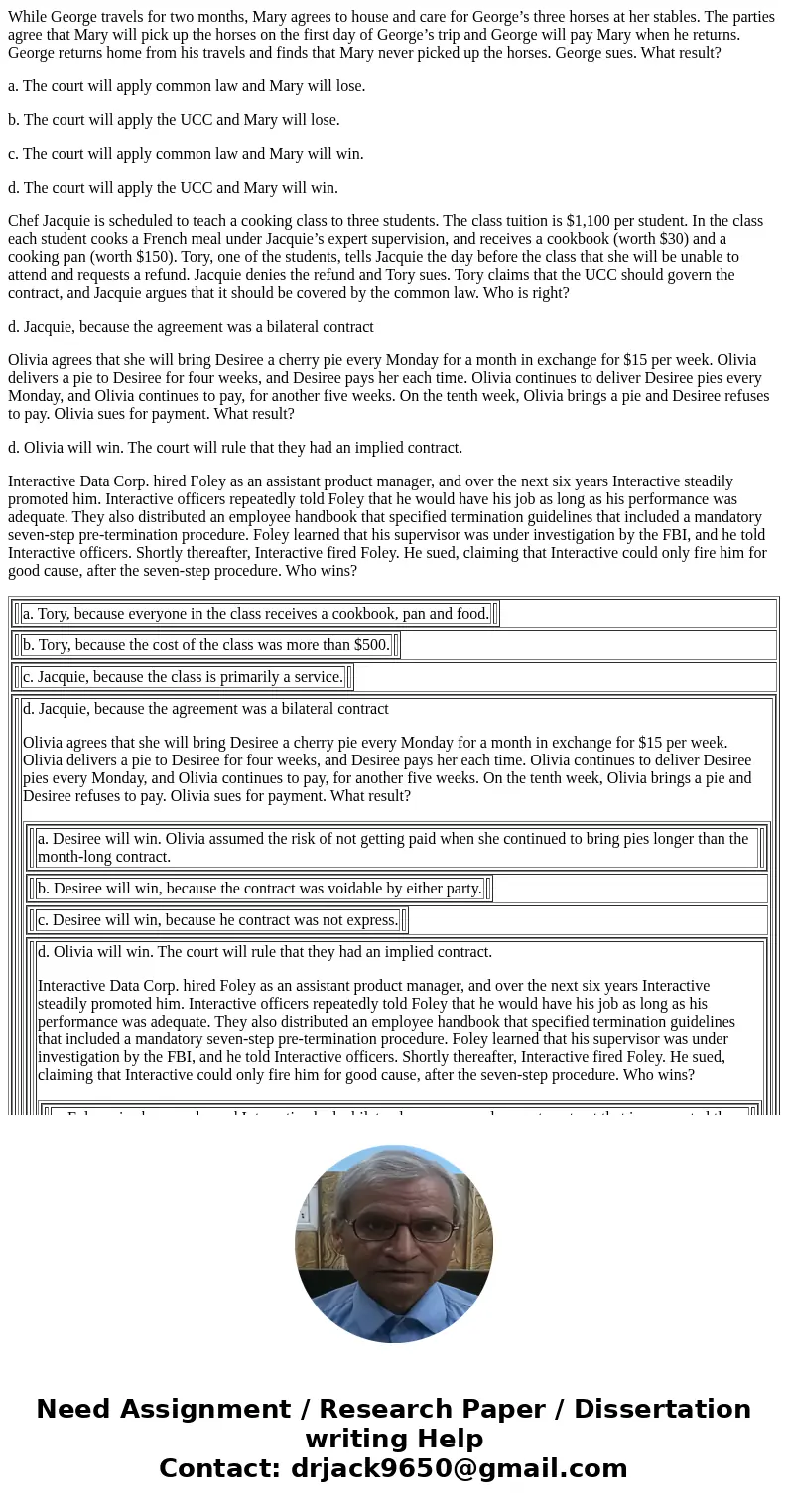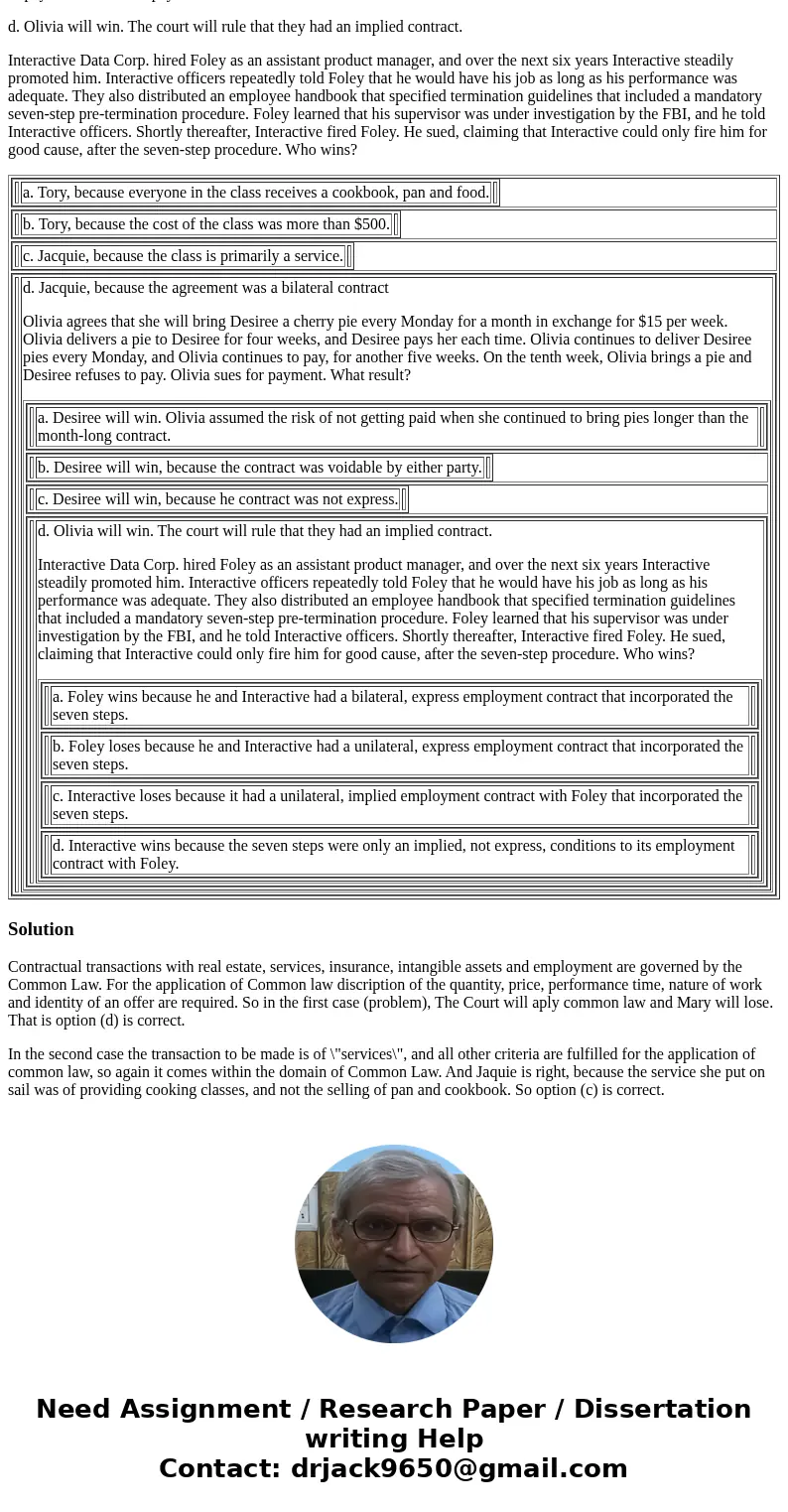While George travels for two months Mary agrees to house and
While George travels for two months, Mary agrees to house and care for George’s three horses at her stables. The parties agree that Mary will pick up the horses on the first day of George’s trip and George will pay Mary when he returns. George returns home from his travels and finds that Mary never picked up the horses. George sues. What result?
a. The court will apply common law and Mary will lose.
b. The court will apply the UCC and Mary will lose.
c. The court will apply common law and Mary will win.
d. The court will apply the UCC and Mary will win.
Chef Jacquie is scheduled to teach a cooking class to three students. The class tuition is $1,100 per student. In the class each student cooks a French meal under Jacquie’s expert supervision, and receives a cookbook (worth $30) and a cooking pan (worth $150). Tory, one of the students, tells Jacquie the day before the class that she will be unable to attend and requests a refund. Jacquie denies the refund and Tory sues. Tory claims that the UCC should govern the contract, and Jacquie argues that it should be covered by the common law. Who is right?
d. Jacquie, because the agreement was a bilateral contract
Olivia agrees that she will bring Desiree a cherry pie every Monday for a month in exchange for $15 per week. Olivia delivers a pie to Desiree for four weeks, and Desiree pays her each time. Olivia continues to deliver Desiree pies every Monday, and Olivia continues to pay, for another five weeks. On the tenth week, Olivia brings a pie and Desiree refuses to pay. Olivia sues for payment. What result?
d. Olivia will win. The court will rule that they had an implied contract.
Interactive Data Corp. hired Foley as an assistant product manager, and over the next six years Interactive steadily promoted him. Interactive officers repeatedly told Foley that he would have his job as long as his performance was adequate. They also distributed an employee handbook that specified termination guidelines that included a mandatory seven-step pre-termination procedure. Foley learned that his supervisor was under investigation by the FBI, and he told Interactive officers. Shortly thereafter, Interactive fired Foley. He sued, claiming that Interactive could only fire him for good cause, after the seven-step procedure. Who wins?
| |||||||||||||||||||||||||||||||||
| |||||||||||||||||||||||||||||||||
| |||||||||||||||||||||||||||||||||
|
Solution
Contractual transactions with real estate, services, insurance, intangible assets and employment are governed by the Common Law. For the application of Common law discription of the quantity, price, performance time, nature of work and identity of an offer are required. So in the first case (problem), The Court will aply common law and Mary will lose. That is option (d) is correct.
In the second case the transaction to be made is of \"services\", and all other criteria are fulfilled for the application of common law, so again it comes within the domain of Common Law. And Jaquie is right, because the service she put on sail was of providing cooking classes, and not the selling of pan and cookbook. So option (c) is correct.


 Homework Sourse
Homework Sourse